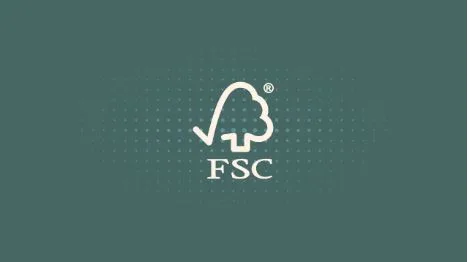Best Customer Service Chatbots in 2025: Types, Benefits & Top Picks
Due to the changing nature of customer demands and needs, it is important to ensure that someone has an effective customer support chatbot to retain the competitive edge. One claim by brand-aligned chatbots is the amplified customer engagement by 35% and beefed up brand recognition and loyalty. The need for automated customer service response is also on a rampage as companies are discovering that the conventional mechanisms of offering assistance to clients are incapable of managing the amount and intricacy of current customer requests. This comprehensive guide will cover all you need to know about customer service chatbots, including what they are and the various types, through to choosing the right solution to meet your business requirements.
What Are Customer Service Chatbots and What Types Exist?
Chatbots are artificial intelligence programs used in customer service by addressing automated customer support through simulating human-like conversation. Such smart systems are applied in grasping the questions of the customers, intent interpretation, and response or solution providing based on the use of natural language processing (NLP) and machine learning algorithms.
Customer Service Chatbots Types
- Rule-Based Chatbots: Such chatbots are limited to pre-written rules and decisions; their responses are scripted. They are most effective at managing simple transactions, easy questions which are frequently asked. Although they are not flexible, they are dependable, especially in asking routine questions.
- AI-Enabled Chatbots: These systems can easily use machine learning and NLP to interpret context and learn over time, and leverage complex conversation. They keep changing their responses depending on the interaction and feedback of the customers.
- Hybrid Chatbots: Hybrid chatbots integrate rule-based AI features and capabilities to deliver the stability of standardized responses but the flexibility required to deal with unpredictable questions. They are able to promote complicated matters to human agents when needed.
- Voice-Activated Chatbots: Voice-activated chatbots convert the spoken word into text by using speech recognition technology, so customers operate and communicate with the chatbot vocally instead of typing. They come in handy especially when handling customers without the use of hands.
The Key Benefits of Customer Service Chatbots for Businesses
The integration of customer service chatbots comes with tremendous benefits which have a direct effect in business operations and satisfaction of the customers:
- 24/7 Availability: Chatbots can offer customers a 24/7 support system that will ensure even when there are changes in time zones in different countries or the business closes, customers will have access to customer support. Research indicates that 64% of the customers demand prompt responses to their questions, which is why continuous availability is also essential.
- Cost Savings: Chatbots can help in saving costs incurred in customer service by up to 30% because they can address whenever routine customer service questions arise without personal contact with the client. This frees employees to deal with advanced customer care duties.
- Rapid Response Times: Chatbots provide real-time responses, and do away with wait time which frustrates customers. Studies show that 90% of buyers consider responses handed out immediately, as either important or very important.
- Data Capture and Analysis: These systems automatically capture useful information on customer interaction and it gives an insight into frequently encountered problems, customer preferences and areas that could be improved upon in the services.
- Multilingual Support: More powerful chatbots are capable of providing multinational support by helping them to communicate in various languages without having multilingual staff.
- Fewer Human Errors: Programmed responses can reduce errors that usually occur during human relations, e.g., sending the wrong information or failure to follow up on customer concerns.
Now let’s have a look at the factors that can help you find the most appropriate customer service chatbot and get the maximum benefits at an affordable rate.
5 Key Factors for Finding the Right Customer Service Chatbot
1. Integration Capabilities
Smart integration with the current systems is the key to the success of chatbots. It has to be linked to your CRM, help desk software, e-commerce and communication channels easily.
When the integration is poor, it causes disjointed experiences of customers and work inefficiencies. An effectively incorporated chatbot draws on the history of customer transactions, orders, and other applicable data in a way that supports the customers with tailored help.
Real-life example: When your customers request a status on their orders, a chatbot that connects to your e-commerce system can easily know the order status, shipping date and the history of their purchases in real time.
2. NLP Quality
The effectiveness of the chatbot to communicate with human language and process it determines its effectiveness in addressing a wide range of the customer inquiries and keeping up natural conversations.
Better NLP means that chatbots can understand intent and context and subtle language, eradicating misunderstandings and returning more pertinent answers.
Real-world example: With sufficient NLP, a chatbot is able to differentiate between “I want to cancel my order” and “I have the ability to change my order,” and answer to every demand accordingly.
3. Brand Alignment and Customization
It should be based on your brand personality, voice and its visual identity but allow customization to work with your exact business needs.
Brand congruence generates customer trust and the seamless customer experience across all contacts.
Practical example: Chatbot of a luxury brand can have a more elaborate language and formal tone whereas casual lifestyle brand may resort to a conversational and friendly communication style.
4. Reporting and Analytics Capabilities
Effective analytics features will allow you to track the performance of chatbots, seek better performance opportunities and calculate ROI.
Data-based information will assist in maximizing the chatbot performance, comprehending customer demands, and selection of service improvement decisions. Reviewing the analytics and revising the chatbot performance on a regular basis may enhance its effectiveness by 50% and raise the score of customer satisfaction rates.
Real-life scenario: Analytics show that 70% of your customers enquire about your returns policies would lead you to consider making this piece of information more evident on your web page.
5. Scalability and Growth Support
The chatbot platform must be able to support your company as it grows, be able to converse with more and more customers and be flexible to changing customer service demands.
Scalable solutions save your investment and guarantee the equal performance with the growth of your business or entering new markets.
Real-life analogy: A chatbot that can work with thousands of conversations a day and can relatively effortlessly scale to 50,000 without reducing performance saves all the costs of upgrades.
Top 8 Customer Service Chatbots in 2025
1. GPTBots.ai
GPTBots.ai is one of the best AI-based customer care solutions, as it provides excellent conversation features and flexible integration possibilities. The site is powered by the latest GPT technology to provide natural communication and smart problem solving.
For businesses looking to build customer service chatbot systems that actually feel human, GPTBots.ai offers the perfect foundation. Their high-quality AI architecture makes GPTBots.ai conversations superior, as compared to the robotic nature of a traditional chatbot. Unlike its competitors, the platform can learn during the interactions and preserve the context during prolonged conversations.
The best part?
GPTBots.ai has the ability to easily customize the responses and conversation journeys to suit their precise industry needs and target customer demographics that are unique to them.
Key Features:
- Advanced natural language processing with state retention
- Multi-channel deployment across websites, social media, and messaging platforms
- Smart agent hand-off to human agent when complex issues occur
- Real-time analytics dashboard with actionable insights
- Custom training on knowledge bases specific to business
- Voice and text-based interaction
- Enterprise-level security and compliance features
2. Zendesk Answer Bot
The Zendesk Answer Bot is highly integrated into the Zendesk ecosystem and offers intelligent customer service automation to businesses that have already been using the Zendesk products.
The strong point of Answer Bot is its thorough integration with a Zendesk full-service customer service ecosystem, which is why it is an excellent solution to consider by current Zendesk users.
Key Features:
- Native Zendesk Support and other Zendesk products
- Machine learning-fuelled response suggestions
- Automated ticket diversion abilities
- Performance statistics and improvement tips
3. Intercom Resolution Bot
The Resolution Bot by Intercom is aimed at addressing customer requests immediately and keeping the possibility of corporate handoff on the side of human agents.
Resolution Bot also performs customer interactions in a proactive manner showing possible problems that may arise that lead to support tickets without their occurrence.
Key Features:
- Smart routing of conversation
- Automated workflows through Custom Actions
- A/B testing of bot responses
- Integration with Intercom customer data platform
4. Drift Conversational AI
Drift focuses on conversational marketing and sales and has the ability to perform multiple customer services tasks, including lead qualification and providing assistance requests.
The special twist of Drift is that it works both as customer service and sales enablement, which makes it especially useful when a specific business needs to turn support interactions into revenue opportunities.
Key Features:
- Revenue-focused conversation optimization
- AI-powered lead qualification algorithms
- Real-time visitor identification
- Playbook-based conversation flows
5. LivePerson Conversational Cloud
LivePerson provides high-security conversational AI products with powerful analytics and intent recognition.
LivePerson is suitable within the enterprises, because it excels in such aspects as security, compliance, and scalability. The efficient analytics engine of the site provides an in-depth insight into the trend and the health of customer behavior and conversation.
Key Features:
- Intent Manager so that one comprehends customer intentions
- Conversation Builder with drag-and-drop capabilities
- Real-time sentiment analysis
- Omnichannel conversation orchestration
6. Ada Customer Service Automation
Ada offers no-code chatbot development that features robust automation capabilities available to customer service teams that lack technical skills.
Excellence in customer service is a key point incorporated in the platform where the repetitive scrutiny of conversation quality and recommendation of modifications towards one of the highest quality customer satisfaction is facilitated by automated functions.
Key Features:
- No-code bot designing interface
- Sophisticated conversation analytics
- Ability to work with multilingual experiences
- 50+ business tool integrations
7. IBM Watson Assistant
The enterprise provenance in Watson Assistant makes it a powerful platform when it comes to high-volume, mission-critical customer service. Relatively advanced AI training tools can enable companies to build exceptionally industry-specific chatbots that comprehend terminology and complicated customer situations at an unprecedented precision.
Key Features:
- Enterprise-grade security and compliance levels
- Vast natural language understanding opportunities
- Support of both voice and text interactions
- Various choices of API that can be used when it comes to integration
8. Microsoft Bot Framework
The extensive platform by Microsoft allows developers to design, test and deploy intelligent chatbots across various channels.
The open-source model used by Microsoft offers unmatched flexibility to companies that have particular customization needs or already have Microsoft technology infrastructures.
Key Features:
- Open-source development platform
- Integration and availability of the Azure Cognitive Services
- Multi-channel deployment
- Developer toolset and documentation
Conclusion
Chatbots in customer service are an innovative technology that reinvents the way customer support is provided. The advantages associated with these intelligent systems are highly convincing and they feature 24/7 availability, reduction of expense, and increased satisfaction. The key to successful platform selection is NLP quality, customization, analytics, integration, and scalability. The more AI evolves, the more sophisticated chatbots will become capable of an even more human experience of interaction. Those businesses that are already practicing this form of technology today are experiencing competitive efficiency in our very digital market.





